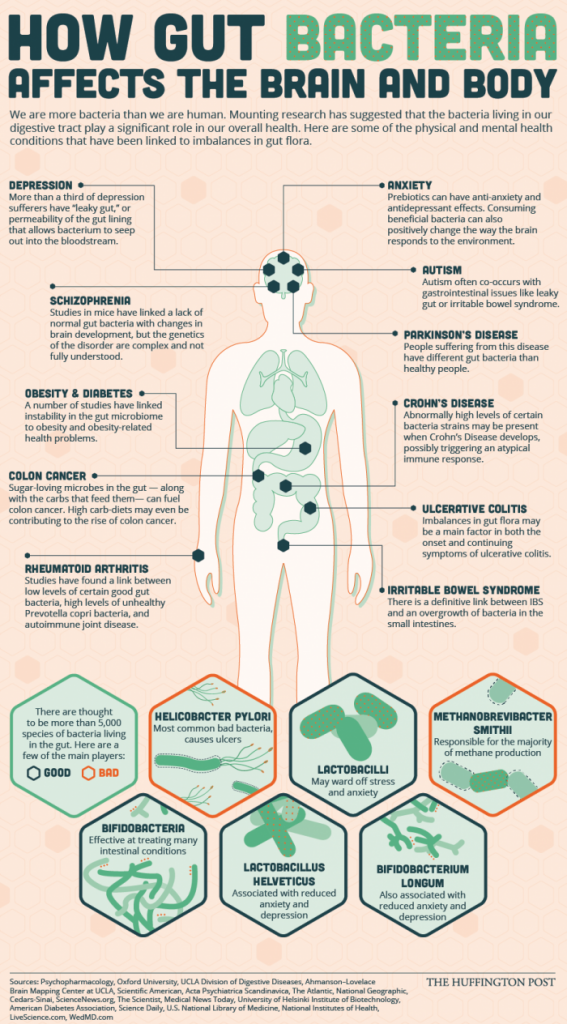
Recent studies suggest bacteria in our digestive tract can play a large role in our overall health. Depression, anxiety, autism, schizophrenia, obesity, cancer and irritable bowel syndrome are just a few of the major complications gut bacteria can create.
One of medicine’s greatest innovations in the 20th century was the development of antibiotics. It transformed our ability to combat disease. But medicine in the 21st century is rethinking its relationship with bacteria and concluding that, far from being uniformly bad for us, many of these organisms are actually essential for our health.
Nowhere is this more apparent than in the human gut, where the microbiome – the collection of bacteria living in the gastrointestinal tract – plays a complex and critical role in the health of its host. The microbiome interacts with and influences organ systems throughout the body, including, as research is revealing, the brain. This discovery has led to a surge of interest in potential gut-based treatments for neuropsychiatric disorders and a new class of studies investigating how the gut and its microbiome affect both healthy and diseased brains.
The microbiome consists of a startlingly massive number of organisms. Nobody knows exactly how many or what type of microbes there might be in and on our bodies, but estimates suggest there may be anywhere from three to 100 times more bacteria in the gut than cells in the human body. The Human Microbiome Project, co-ordinated by the US National Institutes of Health (NIH), seeks to create a comprehensive database of the bacteria residing throughout the gastrointestinal tract and to catalogue their properties. The lives of the bacteria in our gut are intimately entwined with our immune, endocrine and nervous systems. The relationship goes both ways: the microbiome influences the function of these systems, which in turn alter the activity and composition of the bacterial community. We are starting to unravel this complexity and gain insight into how gut bacteria interface with the rest of the body and, in particular, how they affect the brain.
With over 5,000 species of bacteria living in the gut, we have a mix of good and bad microbes. For example the Helicobacter Pylori causes ulcers, while Lactobacilli may ward off stress and anxiety.
So keeping a healthy digestive system is very important.























Leave A Comment